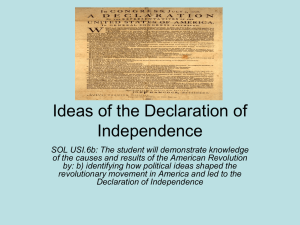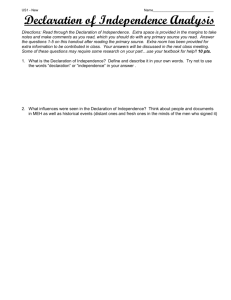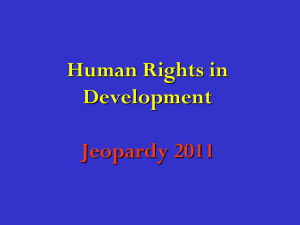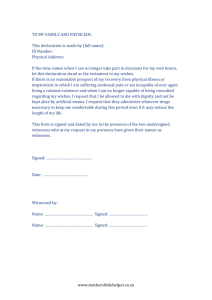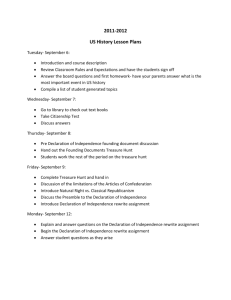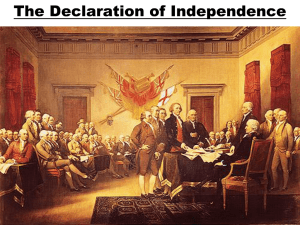Declaration/King
advertisement
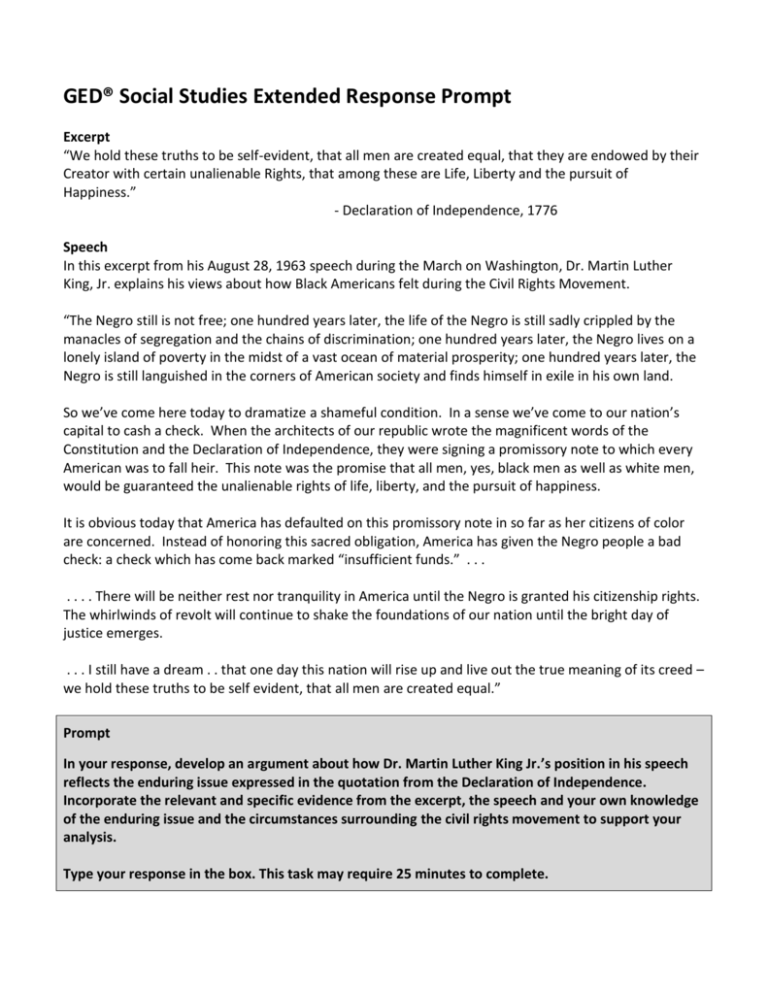
GED® Social Studies Extended Response Prompt Excerpt “We hold these truths to be self-evident, that all men are created equal, that they are endowed by their Creator with certain unalienable Rights, that among these are Life, Liberty and the pursuit of Happiness.” - Declaration of Independence, 1776 Speech In this excerpt from his August 28, 1963 speech during the March on Washington, Dr. Martin Luther King, Jr. explains his views about how Black Americans felt during the Civil Rights Movement. “The Negro still is not free; one hundred years later, the life of the Negro is still sadly crippled by the manacles of segregation and the chains of discrimination; one hundred years later, the Negro lives on a lonely island of poverty in the midst of a vast ocean of material prosperity; one hundred years later, the Negro is still languished in the corners of American society and finds himself in exile in his own land. So we’ve come here today to dramatize a shameful condition. In a sense we’ve come to our nation’s capital to cash a check. When the architects of our republic wrote the magnificent words of the Constitution and the Declaration of Independence, they were signing a promissory note to which every American was to fall heir. This note was the promise that all men, yes, black men as well as white men, would be guaranteed the unalienable rights of life, liberty, and the pursuit of happiness. It is obvious today that America has defaulted on this promissory note in so far as her citizens of color are concerned. Instead of honoring this sacred obligation, America has given the Negro people a bad check: a check which has come back marked “insufficient funds.” . . . . . . . There will be neither rest nor tranquility in America until the Negro is granted his citizenship rights. The whirlwinds of revolt will continue to shake the foundations of our nation until the bright day of justice emerges. . . . I still have a dream . . that one day this nation will rise up and live out the true meaning of its creed – we hold these truths to be self evident, that all men are created equal.” Prompt In your response, develop an argument about how Dr. Martin Luther King Jr.’s position in his speech reflects the enduring issue expressed in the quotation from the Declaration of Independence. Incorporate the relevant and specific evidence from the excerpt, the speech and your own knowledge of the enduring issue and the circumstances surrounding the civil rights movement to support your analysis. Type your response in the box. This task may require 25 minutes to complete. This suggested answer is based on the prompt above. The enduring issue from the Declaration of Independence is that everyone is created equal by God and should have basic rights. In his 1963 speech, Dr. King agrees with the enduring issue shown in the Declaration and believes that both black people and white people should have equal rights and be treated the same. He also says that Black Americans were not treated equally because of segregation and discrimination. The enduring principle is explained in bold In 1776, the Declaration of Independence said that all men are created equal and have certain basic rights. Dr. King agrees with these principles and compares the Declaration to a promise. The promise was that both blacks and whites should have the rights to life, freedom, and to chase their dreams. While the Declaration promised rights to all men, Black Americans were not allowed to use their rights. So the promise of the Declaration was like a bad check that bounced. Specific evidence from the text is paraphrased (not directly quoted) and shown in italics In his speech, Dr. King shows that Black Americans are not free even though slavery ended one hundred years before. He talks about how blacks are segregated, having to ride in the back of the bus and use separate water fountains. Dr. King also shows that Black Americans cannot pursue their dreams. Because of discrimination they live in poverty while the rest of the United States prospers. During the 1960s, Dr. King and others worked to help Black Americans gain equal rights during the Civil Rights movement. They gave speeches, held protests, and demanded equal rights. The Civil Rights movement helped Black Americans get basic rights like the right to vote and to not be discriminated against in housing and education. Dr. King said that the United States would not rest until Black Americans were treated fairly. His dream was that he would one day see an America where the rights given by the Declaration would apply to everyone. The underlined shows the connection between the enduring principle and the later speech. The paragraphs bring in evidence from both passages and explain how they support the enduring principle Information about the Civil Rights movement is given in the last paragraph




